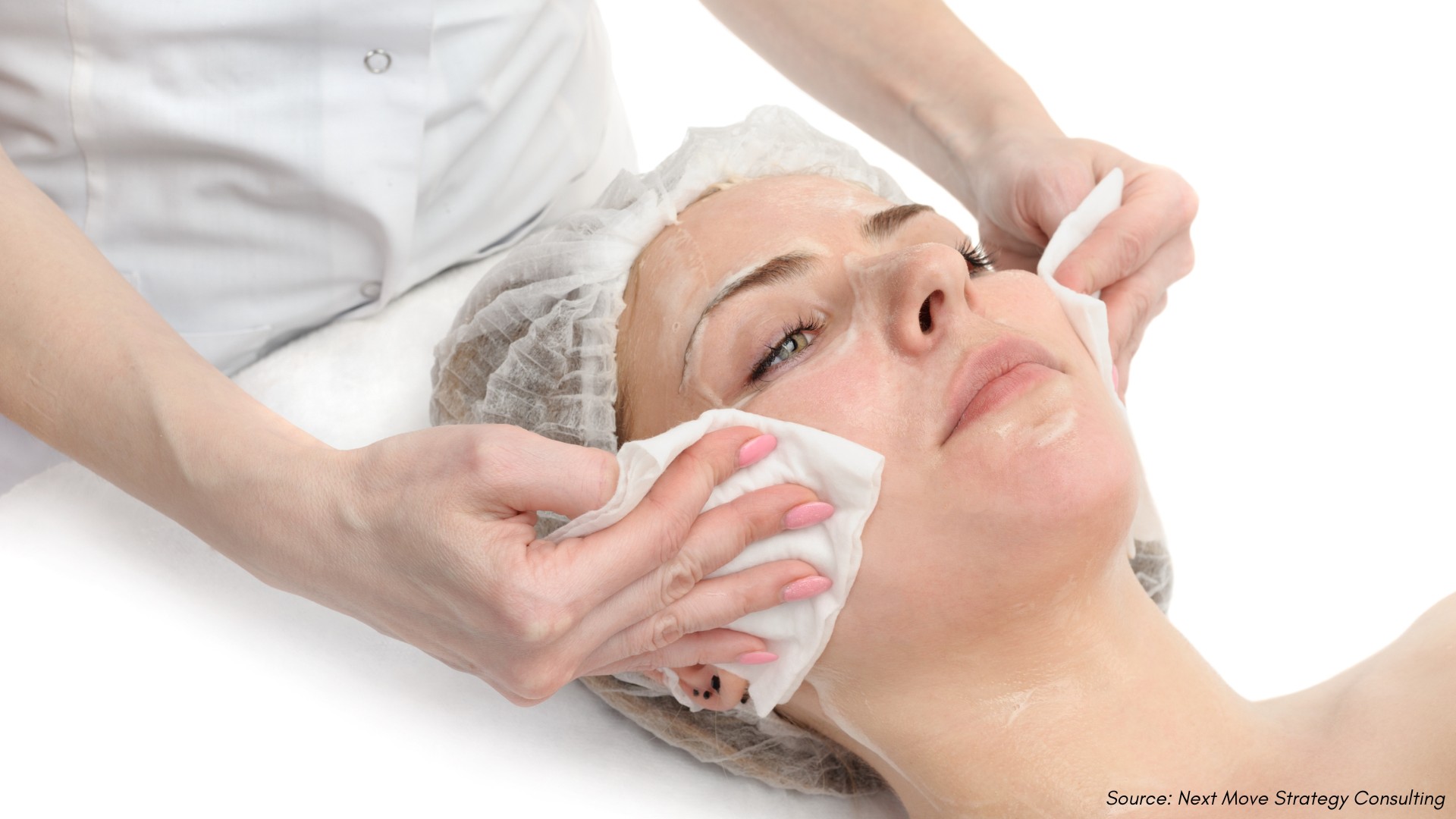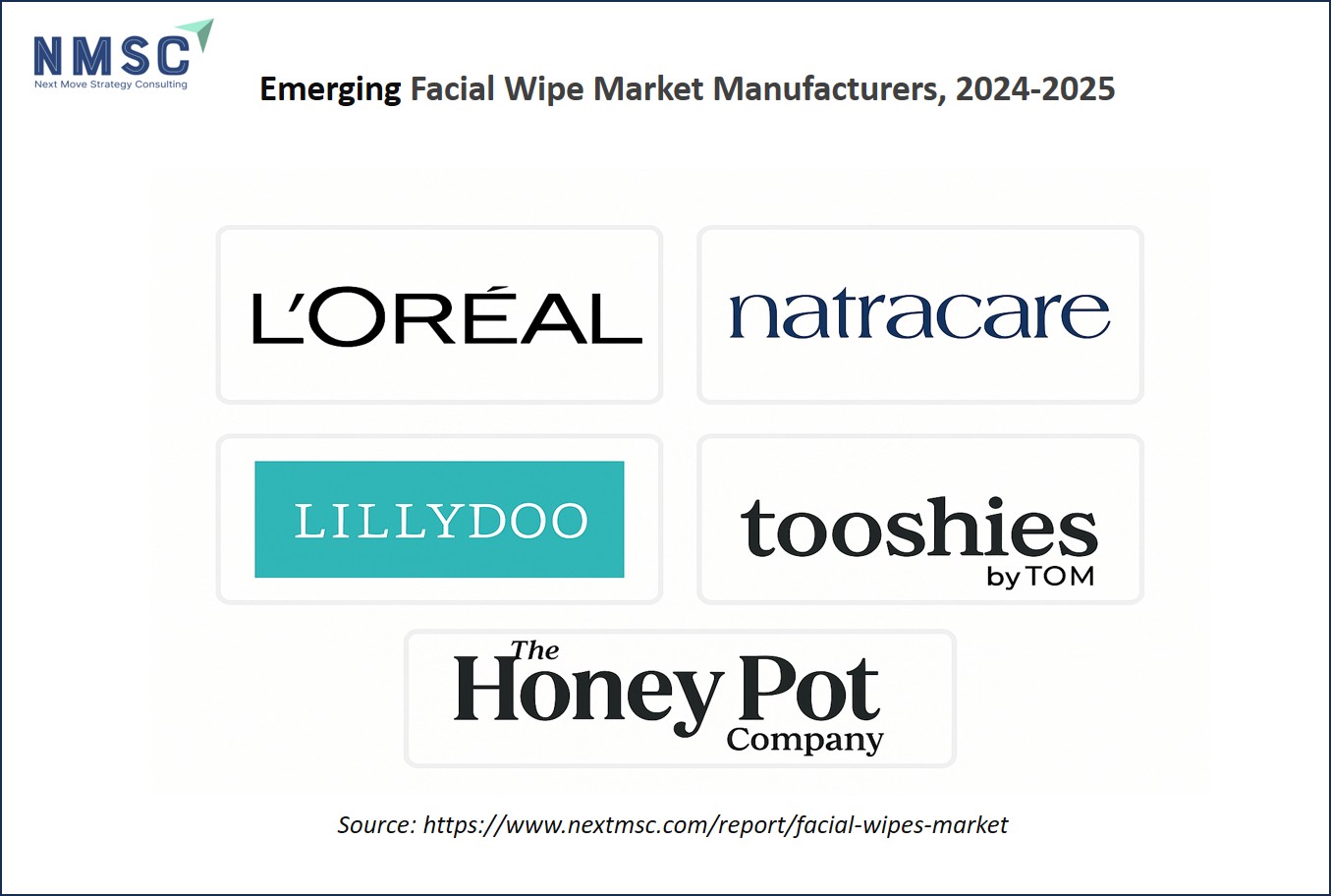What’s New in Facial Wipes for 2024–2025?
Published: 2025-09-10

The Facial Wipe Market is evolving rapidly, driven by consumer demand for convenience, sustainability, and innovation. The market is projected to reach USD 4.81 billion by 2030, growing at a compound annual growth rate (CAGR) of 7.4%.
Let’s dive into the key trends shaping this dynamic industry in 2024 and 2025.
1. Sustainability Takes Center Stage
Consumers are increasingly prioritizing eco-friendly products, and facial wipes are no exception. Environmental concerns about non-biodegradable materials, such as polyester, have pushed manufacturers to innovate with sustainable alternatives.
-
Biodegradable Materials: Brands are shifting to plant-based fibers like bamboo.
-
Why choose bamboo-based wet wipes over traditional ones? These eco-friendly wipes, made from sustainable bamboo, decompose naturally, unlike polyester-based wipes that clog landfills. Their soft, gentle fibers are perfect for sensitive skin, while high absorbency tackles tough messes. Naturally antibacterial due to "bamboo kun," they stay hygienic. Versatile for face, body, or spills, they come in various scents and formulations to suit your needs.
-
For example, in February 2024, Natracare launched COSMOS organic cleansing makeup remover wipes made from 100% organic cotton, which are fully biodegradable, suitable for composting and will return back to the earth naturally.
-
Zero-Waste Innovations: In January 2024, Figure 1 Beauty, in collaboration with Australian-based Conserving Beauty (CB) to develop the 100% zero waste product which are ‘designed to instantly dissolve in water after use,’ utilizing CB’s patented Instamelt fabric technology.
-
The companies partnered to develop and release Micellar Oil Cleansing Wipes to the US market for the first time. The cleansing wipes are a completely zero waste product that dissolves or biodegrades after use, and the product packaging is completely home compostable or recyclable.
-
“The collaboration idea was the perfect opportunity to bring together Fig1’s best-selling Micellar Oil Cleanser with our InstaMelt technology, to provide customers with a planet-friendly solution to cleansing on-the-go,” said Natassia Nicolao, CEO and Founder of Conserving Beauty.
-
The company partnered with skincare innovator, Conserving Beauty to unite sustainability with beauty so you can enjoy a zero-trace cleanse. Each Wipe dissolves within seconds, leaving zero waste and your skin glowingly clean.
-
Recyclable Packaging: Companies are adopting compostable and recyclable packaging to reduce environmental impact.
-
Sustainable packaging significantly bolsters a company’s brand image by aligning with consumer values focused on environmental responsibility. This proactive approach not only improves public perception but also attracts environmentally conscious consumers who prefer brands that prioritize recycling and waste reduction.
-
Transitioning to eco-friendly packaging choices can lead to significant cost savings for businesses, particularly through the principles of a circular economy. By utilizing sustainable materials that are recyclable or biodegradable, companies not only reduce waste disposal expenses but also minimize reliance on fossil fuels in production processes. This choice enhances operational efficiency, as businesses can streamline their supply chains and reduce costs associated with raw material procurement.
-
2. Personalization Through Technology
The beauty industry is embracing technology to offer tailored solutions, and facial wipes are following suit. Consumers want products that address specific skin types and concerns, such as acne or sensitivity.
-
AI-Powered Customization: L’Oréal introduced L’Oréal’s ModiFace, an Augmented Reality and Artificial Intelligence subsidiary, partnered with L’Oréal Research & Innovation to launch an AI-powered digital skin diagnostic tool in 2024, leveraging 15 years of scientific research on skin aging.
-
The tool uses a deep-learning algorithm, developed by ModiFace and informed by L’Oréal’s skin aging expertise and photo database. Trained on 6,000 clinical images from L’Oréal’s Skin Aging Atlases and a model built from over 4,500 smartphone selfies across Asian, Caucasian, and Afro-American women in four lighting conditions, the technology delivers precise skin assessments.
-
Developed with dermatologist input, it ensures accurate results despite varying facial expressions, lighting, and phone positions, mimicking real-world consumer use
-
-
Microbiome-Friendly Formulations: The rise of microbiome-friendly skincare focuses on preserving the skin’s natural bacteria. Several companies are developing wipes infused with prebiotics and postbiotics to support skin health without stripping natural oils. Tooshies offers probiotic wipes for babies, while Lillydoo has wipes with prebiotics. Gallinée focuses on microbiome skincare with both prebiotics and probiotics. Additionally, The Honey Pot Company offers prebiotic wipes for feminine hygiene.
-
Lillydoo’s wet wipes with prebiotics contribute to strengthening the skin's microbiome. Gentle on the skin. Dermatologically tested. 100% plastic-free cloth. Both the formulation and the soft cloth are perfectly tailored to the needs of delicate baby skin, for skin-friendly care from day one.
-
Tooshies Probiotic Wipes are packed with over 99% pure water and enriched with Lactobacillus, a probiotic that is well-known for helping to reduce skin inflammation and improve the skin’s barrier function. But that’s not all—they also contain Avena Sativa Kernel Extract, which is derived from oats and is known for its soothing, anti-inflammatory properties. This combination makes these wipes not just a cleaning tool, but a skincare product.
-
Gallinée harnesses the power of active probiotics & prebiotics to soothe, balance and strengthen skin microbiome; the key to a healthy, glowing complexion. Our breakthrough formulas are tested and backed up with the strictest, most thorough & innovative clinical testing methods available.
- The Honey Pot’s Prebiotic Wipes are scientifically proven to enhance vaginal health by fostering a balanced microbiome of beneficial bacteria.
-
Gynecologist-tested, hypoallergenic, and gentle on skin, these wipes are designed for safe use.
3. Convenience Drives Innovation
In today’s fast-paced world, convenience remains a key driver of facial wipe popularity. Consumers value portable, mess-free solutions for on-the-go skincare.
-
Multi-Functional Wipes: Several brands offer dual-purpose makeup removal and moisturizing wipes. Companies like Kleenowipe, Real Techniques, and Kressa offer wipes that combine makeup removal with moisturizing benefits.
-
Kressa makeup remover wipes are formulated with white tea, rich in antioxidants and anti-aging properties, to nourish and rejuvenate the skin. Infused with argan oil extracts, these wipes moisturize deeply while offering protection against sun damage and infections. Hypoallergenic and designed for all skin types, they provide a gentle, effective cleansing solution for daily use.
-
Kleenowipe Exfoliating & Cleansing Facial Wipes feature microspheres for gentle exfoliation, effectively removing impurities and dead skin cells from the face, neck, and hands, leaving skin smooth, even, and radiant. The soft side, infused with salicylic acid, acts as a gentle cleanser to control flaky skin and promote a fresh, uniform tone. For ultra-sensitive skin, these wipes include chamomile to soothe inflammation and reduce flakiness. Designed as a premium, multipurpose skincare solution, Kleenowipe wipes are portable, fitting easily into purses, cars, or bags, making them ideal for use at home, the office, gym, travel, or after a night out.
-
Real Techniques Makeup Wipes, infused with hyaluronic acid, provide long-lasting hydration while gently removing makeup, dirt, oil, and impurities, leaving skin refreshed and replenished. Packaged in a convenient resealable pack, these wipes are ideal for daily use and travel, meeting monthly skincare needs with ease.
-
-
Rise of Disposable Face Towels: In January 2024, Ditoi Beauty, a leader in skincare innovation, has seen a surge in demand for its disposable face towels, driven by viral traction on TikTok since November 2023, with 10,000 units sold in just two months
-
These single-use, 100% biodegradable towels, made from natural plant fibers, offer a hygienic and eco-friendly alternative to traditional reusable towels, addressing consumer concerns about bacterial contamination and environmental impact. With superior water absorption and a comfortable, towel-like feel, they ensure a refreshing cleansing experience.
-
Competitively priced on TikTok, Amazon, and Ditoi’s official website, the towels are accessible to a wide audience, with promotions like free shipping on orders over $20 and a $5 discount on purchases of $25 or more enhancing consumer value. This aligns with Ditoi’s commitment to sustainability and caters to the growing demand for convenient, eco-conscious skincare solutions.
-
4. E-Commerce and Social Commerce Surge
The growth of online retail and social media platforms is reshaping how facial wipes are marketed and sold, particularly in regions like Asia-Pacific and North America.
-
Online Retail Boom: Online platforms offer convenience and variety, driving sales. In February 2024, Loved01, based in Venice, California, in the United States, launched products including cleansing wipes on Amazon’s beauty store, expanding market reach. The brand offers consumers clean, vegan and cruelty-free formulas with a focus on hydration and protection, featuring a proprietary blend of sea buckthorn oil and rosehip oil.
-
Social Commerce in China: Social commerce platforms like Douyin (China’s Tiktok) already racked up a staggering US$150 billion GMV in 2021 alone. While WeChat and Xiaohongshu (Red) have been dabbling in e-commerce, Douyin has been sprinting ahead, leaving its competitors in the dust. It’s becoming the must-have platform for any brand serious about cracking the Chinese market. In the fast-evolving world of e-commerce, Douyin is the new frontier that no brand can afford to ignore.
E-commerce and social commerce are transforming the facial wipe market, offering brands new opportunities to reach consumers through online and omnichannel strategies.
5. Focus on Health and Safety
Concerns about harmful chemicals in facial wipes, such as sodium lauryl sulfate methylisothiazolinone (MIT), and other synthetic fragrances or preservatives of concern, are prompting manufacturers to prioritize safer, natural ingredients.
-
Natural and Organic Ingredients: Companies are replacing harsh chemicals with organic alternatives. For instance, Natracare’s 2024 wipes use soft 100% organic cotton cloth or 100% chlorine-free paper. Designed specifically for sensitive skin, with a gentle plant-based formula and organic essential oils.
-
Consumer Awareness: The American Academy of Dermatology notes that acne affects 50 million Americans annually. Also, acne is one of the most common diseases worldwide, affecting 85% of adolescents and often persisting into adulthood, hence driving demand for gentle, non-irritating wipes.
- Health and safety concerns are pushing brands to adopt natural ingredients and comply with stricter regulations, ensuring consumer trust and market growth.
Next Steps: Actionable Takeaways for Brands and Consumers
To capitalize on these trends, stakeholders in the facial wipe market can take the following steps:
-
Invest in Sustainable Practices: Develop biodegradable wipes and recyclable packaging to align with consumer demand for eco-friendly products.
-
Leverage Technology: Integrate AI tools for personalized product recommendations and enhance consumer engagement through e-commerce platforms.
-
Prioritize Natural Ingredients: Replace harmful chemicals with organic and microbiome-friendly formulations to address health and safety concerns.
-
Expand Online Presence: Partner with online retailers and social commerce platforms like Amazon and Douyin to reach a broader audience.
-
Innovate for Convenience: Focus on multi-functional wipes and travel-friendly packaging to cater to busy, on-the-go consumers.
The facial wipe market is poised for significant growth through 2025, driven by sustainability, personalization, and convenience. By aligning with these trends, brands can meet consumer expectations and thrive in this competitive landscape. Stay informed and adapt to these shifts to remain ahead in the evolving beauty industry.
About the Author
 Sneha Chakraborty is a seasoned SEO Executive and Content Writer with over 4 years of experience in the digital marketing space, bringing a strong command of online visibility strategies and a keen insight into the evolving digital landscape. She specializes in enhancing online visibility and user engagement through data-driven strategies and creative content solutions. She has been closely observing trends across various industry domains, bringing insightful perspectives into her writing. Sneha is passionate about translating complex digital concepts into accessible content for a wide audience. Outside of work, she enjoys reading, sketching, and exploring the outdoors through nature photography.
Sneha Chakraborty is a seasoned SEO Executive and Content Writer with over 4 years of experience in the digital marketing space, bringing a strong command of online visibility strategies and a keen insight into the evolving digital landscape. She specializes in enhancing online visibility and user engagement through data-driven strategies and creative content solutions. She has been closely observing trends across various industry domains, bringing insightful perspectives into her writing. Sneha is passionate about translating complex digital concepts into accessible content for a wide audience. Outside of work, she enjoys reading, sketching, and exploring the outdoors through nature photography.
About the Reviewer
 Sanyukta Deb is a seasoned Content Writer and Team Leader in Digital Marketing, known for her expertise in crafting online visibility strategies and navigating the dynamic digital landscape. With a flair for developing data-driven campaigns and producing compelling, audience-focused content, she helps brands elevate their presence and deepen user engagement. Beyond her professional endeavors, Sanyukta finds inspiration in creative projects and design pursuits.
Sanyukta Deb is a seasoned Content Writer and Team Leader in Digital Marketing, known for her expertise in crafting online visibility strategies and navigating the dynamic digital landscape. With a flair for developing data-driven campaigns and producing compelling, audience-focused content, she helps brands elevate their presence and deepen user engagement. Beyond her professional endeavors, Sanyukta finds inspiration in creative projects and design pursuits.

















Add Comment